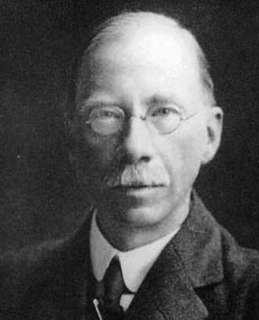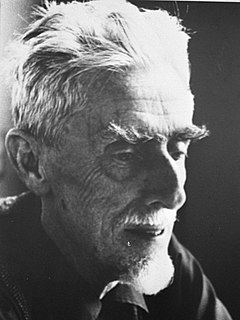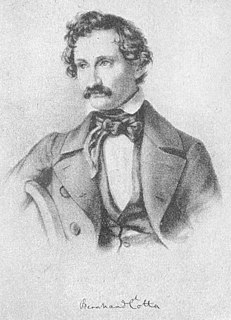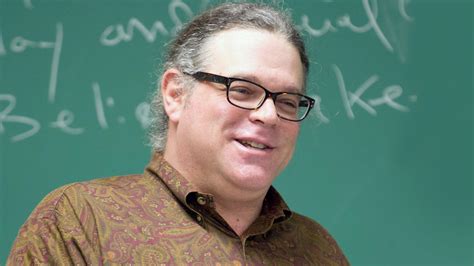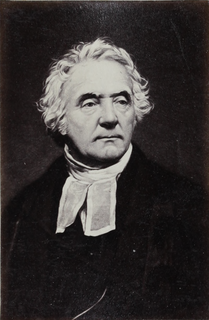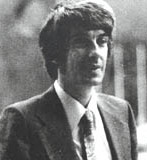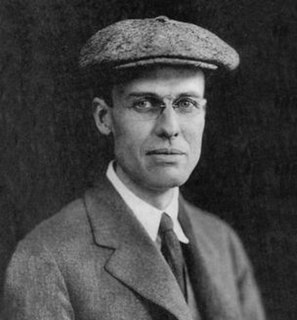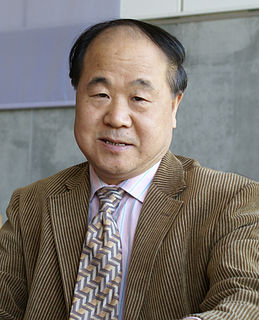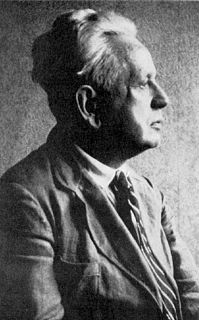Top 808 Phenomena Quotes & Sayings - Page 13
Explore popular Phenomena quotes.
Last updated on April 20, 2025.
The ancient intuition that all matter, all "reality," is energy, that all phenomena, including time and space, are mere crystallizations of mind, is an idea with which few physicists have quarreled since the theory of relativity first called into question the separate identities of energy and matter. Today most scientists would agree with the ancient Hindus that nothing exists or is destroyed, things merely change shape or form; that matter is insubstantial in origin, a temporary aggregate of he pervasive energy that animates the electron.
Of course, a psychologist would find it more direct to study the inspired poet. He would make concrete studies of inspiration in individual geniuses. But for all that, would he experience the phenomena of inspiration? His human documentation gathered from inspired poets could hardly be related, except from the exterior, in an ideal of objective observations. Comparison of inspired poets would soon make us lose sight of inspiration.
I will now direct the attention of scientists to a previously unnoticed cause which brings about the metamorphosis and decomposition phenomena which are usually called decay, putrefaction, rotting, fermentation and moldering. This cause is the ability possessed by a body engaged in decomposition or combination, i.e. in chemical action, to give rise in a body in contact with it the same ability to undergo the same change which it experiences itself.
Stupidity is a factor to be reckoned with in human affairs. The true leader always expects to encounter it, and prepares to endure it patiently so long as it is normal stupidity. He knows that his ideas will be distorted, his orders carelessly executed; and that there will be jealousy among his assistants. He takes these inevitable phenomena into account, and instead of attempting to find men without faults, who are non-existent, he tries to make use of the best men at his disposal - as they are, and not as they ought to be.
It is possible to express the laws of thermodynamics in the form of independent principles , deduced by induction from the facts of observation and experiment, without reference to any hypothesis as to the occult molecular operations with which the sensible phenomena may be conceived to be connected; and that course will be followed in the body of the present treatise. But, in giving a brief historical sketch of the progress of thermodynamics, the progress of the hypothesis of thermic molecular motions cannot be wholly separated from that of the purely inductive theory.
The effects of heat are subject to constant laws which cannot be discovered without the aid of mathematical analysis. The object of the theory is to demonstrate these laws; it reduces all physical researches on the propagation of heat, to problems of the integral calculus, whose elements are given by experiment. No subject has more extensive relations with the progress of industry and the natural sciences; for the action of heat is always present, it influences the processes of the arts, and occurs in all the phenomena of the universe.
The investigation of causal relations between economic phenomena presents many problems of peculiar difficulty, and offers many opportunities for fallacious conclusions. Since the statistician can seldom or never make experiments for himself, he has to accept the data of daily experience, and discuss as best he can the relations of a whole group of changes; he cannot, like the physicist, narrow down the issue to the effect of one variation at a time. The problems of statistics are in this sense far more complex than the problems of physics.
Man is made of opinions,—of truth and error; and his life is a warfare like all other lives before him.... Man goes on developing error upon error till he is buried in his own belief.... It is the office of wisdom to explain the phenomena in man called disease, to show how it is made, and how it can be unmade. This is as much a science as it is to know how to decompose a piece of metal.
As soon as the circumstances of an experiment are well known, we stop gathering statistics. ... The effect will occur always without exception, because the cause of the phenomena is accurately defined. Only when a phenomenon includes conditions as yet undefined,Only when a phenomenon includes conditions as yet undefined, can we compile statistics. ... we must learn therefore that we compile statistics only when we cannot possibly help it; for in my opinion, statistics can never yield scientific truth.
The progress of science has always been the result of a close interplay between our concepts of the universe and our observations on nature. The former can only evolve out of the latter and yet the latter is also conditioned greatly by the former. Thus in our exploration of nature, the interplay between our concepts and our observations may sometimes lead to totally unexpected aspects among already familiar phenomena.
England and all civilised nations stand in deadly peril of not having enough to eat. As mouths multiply, food resources dwindle. Land is a limited quantity, and the land that will grow wheat is absolutely dependent on difficult and capricious natural phenomena... I hope to point a way out of the colossal dilemma. It is the chemist who must come to the rescue of the threatened communities. It is through the laboratory that starvation may ultimately be turned into plenty... The fixation of atmospheric nitrogen is one of the great discoveries, awaiting the genius of chemists.
The experimental investigation by which Ampere established the law of the mechanical action between electric currents is one of the most brilliant achievements in science. The whole, theory and experiment, seems as if it had leaped, full grown and full armed, from the brain of the 'Newton of Electricity'. It is perfect in form, and unassailable in accuracy, and it is summed up in a formula from which all the phenomena may be deduced, and which must always remain the cardinal formula of electro-dynamics.
It is not merely the brevity by which the haiku isolates a particular group of phenomena from all the rest; nor its suggestiveness, through which it reveals a whole world of experience. It is not only in its remarkable use of the season word, by which it gives us a feeling of a quarter of the year; nor its faint all-pervading humour. Its peculiar quality is its self-effacing, self-annihilative nature, by which it enables us, more than any other form of literature, to grasp the thing-in-itself.
Although I am even now still a layman in the area of mathematics, and although I lack theoretical knowledge, the mathematicians, and in particular the crystallographers, have had considerable influence on my work of the last twenty years. The laws of the phenomena around us--order, regularity, cyclical repetition, and renewals--have assumed greater and greater importance for me. The awareness of their presence gives me peace and provides me with support. I try in my prints to testify that we live in a beautiful and orderly world, and not in a formless chaos, as it sometimes seems.
Round about the accredited and orderly facts of every science there ever floats a sort of dust-cloud of exceptional observations, of occurrences minute and irregular and seldom met with, which it always proves more easy to ignore than to attend to... Anyone will renovate his science who will steadily look after the irregular phenomena, and when science is renewed, its new formulas often have more of the voice of the exceptions in them than of what were supposed to be the rules.
Since time itself is not movement, it must somehow have to do with movement.Time is initially encountered in those entities which are changeable, change is in time. How is time exhibited in this way of encountering it, namely, as that within which things change? Does it here give itself as itself in what it is? Can an axplacation of time starts here guarantee that time will thereby provide as it were the fundamental phenomena that determine it in its own being?
All forms of beauty, like all possible phenomena, contain an element of the eternal and an element of the transitory - of the absolute and of the particular. Absolute and eternal beauty does not exist, or rather it is only an abstraction creamed from the general surface of different beauties. The particular element in each manifestation comes from the emotions: and just as we have our own particular emotions, so we have our own beauty.
The television screen, so unlike the movie screen, sharply reduced human beings, revealed them as small, trivial, flat, in two banal dimensions, drained of color. Wasn't there something reassuring about it! -- that human beings were in fact merely images of a kind registered in one another's eyes and brains, phenomena composed of microscopic flickering dots like atoms. They were atoms -- nothing more. A quick switch of the dial and they disappeared and who could lament the loss?
I told myself: 'I am surrounded by unknown things.' I imagined man without ears, suspecting the existence of sound as we suspect so many hidden mysteries, man noting acoustic phenomena whose nature and provenance he cannot determine. And I grew afraid of everything around me – afraid of the air, afraid of the night. From the moment we can know almost nothing, and from the moment that everything is limitless, what remains? Does emptiness actually not exist? What does exist in this apparent emptiness?
The widespread inability to understand technological artifacts as fabricated entities, as social and cultural phenomena, derives from the fact that in retrospect only those technologies that prove functional for a culture and can be integrated into everyday life are 'left over.' However, the perception of what is functional, successful and useful is itself the product of social and cultural--and last but not least--political and economic processes. Selection processes and abandoned products and product forms are usually not discussed.
In the course of the history of the earth innumerable events have occurred one after another, causing changes of states, all with certain lasting consequences. This is the basis of our developmental law, which, in a nutshell, claims that the diversity of phenomena is a necessary consequence of the accumulation of the results of all individual occurrences happening one after another... The current state of the earth, thus, constitutes the as yet most diverse final result, which of course represents not a real but only a momentary end-point.
That's why we cannot love, because with the ego, love is impossible. That's why we go on talking so much about love, but we never are in love. And whatsoever we call love is more or less sex, it is not love; because you cannot lose your ego, and love cannot exist unless the ego has disappeared. Love, meditation, godliness, they all require one thing - the ego must not be there. That's why Jesus is right in saying that God is love, because both phenomena happen only when the ego is not.
Whether we live by the seaside, or by the lakes and rivers, or on the prarie, it concerns us to attend to the nature of fishes, since they are not phenomena confined to certain localities only, but forms and phases of the life in nature universally dispersed. The countless shoals which annually coast the shores of Europe and America are not so interesting to the student of nature as the more fertile law itselffrom which it results that they may be found in water in so many places, in greater or lesser numbers.
The whole analogy of natural operations furnishes so complete and crushing an argument against the intervention of any but what are termed secondary causes, in the production of all the phenomena of the universe; that, in view of the intimate relations between Man and the rest of the living world; and between the forces exerted by the latter and all other forces, I can see no excuse for doubting that all are co-ordinated terms of Nature's great progression, from the formless to the formed from the inorganic to the organic from blind force to conscious intellect and will.
When a man in the process of dreaming becomes conscious that he is dreaming, he is no longer identified with the phenomena; he is not affected exultantly or dolefully. God consciously dreams His cosmic play and is unaffected by it's dualities. A yogi who perceives his real self as separate from his active senses and their objects never becomes attached to anything. He is aware of the dream nature of the universe and watches it without being entangled in its complex but ephemeral nature.
It's impossible to say that live art enjoys any single status in the information age--there are versions of live art that are still primarily art-world phenomena, others that appeal to much broader audiences. The Burning Man festival is a case in point--an event featuring performance that is itself a performance, which partakes simultaneously of frontier mythology, a counter-cultural impulse, and popular cultural visibility.
The human mind feels restless and dissatisfied under the anxieties of ignorance. It longs for the repose of conviction; and to gain this repose it will often rather precipitate its conclusions than wait for the tardy lights of observation and experiment. There is such a thing, too, as the love of simplicity and system,--a prejudice of the understanding which disposes it to include all the phenomena of nature under a few sweeping generalities,--an indolence which loves to repose on the beauties of a theory rather than encounter the fatiguing detail of its evidences.
In order to understand the phenomena in a certain plasma region, it is necessary to map not only the magnetic but also the electric field and the electric currents. Space is filled with a network of currents which transfer energy and momentum over large or very large distances. The currents often pinch to filamentary or surface currents. The latter are likely to give space, as also interstellar and intergalactic space, a cellular structure.
I think the stage is set for the appearance of new faiths, centred on the UFO belief. To a greater degree than all phenomena modern science is confronting, the UFO can inspire awe, the sense of the smallness of man, and an idea of the possibility of contact with the cosmic. The religions we have briefly surveyed began with the miraculous experiences of one person, but to-day there are thousands for whom the belief in otherworldly contact is based on intimate conviction, drawn from what they regard as personal contact with UFOs and their occupants.
He must also know evil, hate and bigotry as real phenomena, but he must see love as the greater force. He must not doubt this even for a moment or he is lost. His only salvation is to dedicate himself to love, in the same fashion as Gandhi did to militant nonviolence, as Socrates to truth, as Jesus did to love and as More did to integrity. Only then will he have the strength to combat the forces of doubt, confusion and contradiction. He can depend upon no on or no thing for reinforcement and assurance but himself.
The main condition for the achievement of love is the overcoming of one's narcissism. The narcissistic orientation is one in which one experiences as real only that which exists within oneself, while the phenomena in the outside world have no reality in themselves, but are experienced only from the viewpoint of their being useful or dangerous to one. The opposite pole to narcissism is objectivity; it is the faculty to see other people and things as they are, objectively, and to be able to separate this objective picture from a picture which is formed by one's desires and fears.
Most people don't put things together. Geologists study the surface of the earth and geological phenomena. Meteorogists study the weather. That isn't science. Science is the study of all things that affect human beings. They have to be together! A meteorologist has difficulty talking with a sociologist, because they don't understand each other. You can't teach sciences in 'bits'; you have to bring it all together. Science is a way of thinking - a way at arriving at conclusions without your own opinion in it.
One of the weaknesses of much abstract painting is the attempt to substitute the inventions of the intellect for a pristine imaginative conception. The inner life of a human being is a vast and varied realm and does not concern itself alone with stimulating arrangements of color, form and design. The term 'life' as used in art is something not to be held in contempt, for it applies all of its existence, and the province of art is to react to it and not to shun it. Painting will have to deal more fully and less obliquely with life and nature's phenomena before it can again be great.
It is clear, from these considerations, that the three methods of classifying mankind-that according to physical characters, according to language, and according to culture-all reflect the historical development of races from different standpoints; and that the results of the three classifications are not comparable, because the historical facts do not affect the three classes of phenomena equally. A consideration of all these classes of facts is needed when we endeavour to reconstruct the early history of the races of mankind.
Mathematical analysis is as extensive as nature itself; it defines all perceptible relations, measures times, spaces, forces, temperatures:;; this difficult science is formed slowly, but it preserves every principle which it has once acquired; it grows and strengthens itself incessantly in the midst of the many variations and errors of the human mind. It's chief attribute is clearness; it has no marks to express confused notations. It brings together phenomena the most diverse, and discovers the hidden analogies which unite them.
The playfulness that I talk about comes very slowly. You cannot just jump out of your seriousness which you have accumulated for lives. Now it has a force of its own. It is not a simple matter to relax; it is one of the most complex phenomena possible, because all that we are taught is tension, anxiety, anguish. Seriousness is the very core the society is built around. Playfulness is for small children, not for grown-up people. And I am teaching you to be children again, to be playful again. It is a quantum leap, a jump...but it takes time to understand.
The greatest, like Rembrandt, paint a gallant, a hag, and a carcass with equal passion and rapture; they love the truth as it is. They do not admit that anything can be ugly or evil; its existence justifies itself. This is because they know themselves to be part of an harmonious unity; to disdain any item of it would be to blaspheme the whole. The Thelemite is able to revel in any experience soever; in each he recognizes the tokens of ultimate Truth. It is surely obvious, even intellectually, that all phenomena are interdependent, and therefore involve each other.
Rather than thinking of sound and sense in my essays as two opposing principles, two perpendicular trajectories, as they are often considered in conversations around translation, or even as two disassociated phenomena that can be brought together to collaborate with more or less success, I think of sound as sense. Sound has its own meaning, and it's one of the many non-semantic dimensions of meaning in language. I want to emphasize is the formal dynamic between language-as-information and language-as-art-material.
Philosophy would long ago have reached a high level if our predecessors and fathers had put this into practice; and we would not waste time on the primary difficulties, which appear now as severe as in the first centuries which noticed them. We would have the experience of assured phenomena, which would serve as principles for a solid reasoning; truth would not be so deeply sunken; nature would have taken off most of her envelopes; one would see the marvels she contains in all her individuals.
All kinds of mysterious phenomena exist in this world, but answers to most of them have come with advances in scientific knowledge. Love is the sole holdout-nothing can explain it. A Chinese writer by the name of Ah Cheng wrote that love is just a chemical reaction, an unconventional point of view that seemed quite fresh at the time. But if love can be controlled and initiated by means of chemistry, then novelists would be out of a job. So while he may have had his finger on the truth, I'll remain a member of the loyal opposition.
Tempests, and bright lightnings, are to be sung; their nature is to be told, and from what cause they pursue their course; lest, having foolishly divided the heaven into parts, you should be anxious as to the quarter from which the flying flame may come, or to what region it may betake itself; and tremble to think how it penetrates through walled enclosures, and how, having exercised its power, it extricates itself from them. Of which phenomena the multitude can by no means see the causes, and think that they are accomplished by supernatural power.
To be worthy of the name, an experimenter must be at once theorist and practitioner. While he must completely master the art of establishing experimental facts, which are the materials of science, he must also clearly understand the scientific principles which guide his reasoning through the varied experimental study of natural phenomena. We cannot separate these two things: head and hand. An able hand, without a head to direct it, is a blind tool; the head is powerless without its executive hand.
He says you don't often find angels in places like happy homes and rich people's backyard parties. He says that angels flock to places like hospitals and homelss shelters and jails, because those people realize they need help. And do they are able to believe in strange phenomena. Funny how the world is backward. The really comfortable people don't always see much supernaturally, and to the ones who have to struggle, it's, like, breathing in their faces. The first are last... and the last are first.
I won't forget those kind of things, but I just want to write them down and look at them. It's almost like when things like music come out and you're listening to a song and you have experiences with art or phenomena that supersede your simple relationship with them as just a piece of art. They're more than that. That's just what those quote are for me. They're big, they're important.
Now he began to see for the first time the unbelievable magnitude of what man, when he gained power to understand and rule the world in terms of dialectic truths, had lost. He had built empires of scientific capability to manipulate the phenomena of nature into enormous manifestations of his own dreams of power and wealth...but for this he had exchanged an empire of understanding of equal magnitude: an understanding of what it is to be a part of the world, and not an enemy of it.
It is one thing for the human mind to extract from the phenomena of nature the laws which it has itself put into them; it may be a far harder thing to extract laws over which it has no control. It is even possible that laws which have not their origin in the mind may be irrational, and we can never succeed in formulating them.
The total quantity of all the forces capable of work in the whole universe remains eternal and unchanged throughout all their changes. All change in nature amounts to this, that force can change its form and locality, without its quantity being changed. The universe possesses, once for all, a store of force which is not altered by any change of phenomena, can neither be increased nor diminished, and which maintains any change which takes place on it.
There is a conceptual depth as well as a purely visual depth. The first is discovered by science; the second is revealed in art. The first aids us in understanding the reasons of things; the second in seeing their forms. In science we try to trace phenomena back to their first causes, and to general laws and principles. In art we are absorbed in their immediate appearance, and we enjoy this appearance to the fullest extent in all its richness and variety. Here we are not concerned with the uniformity of laws but with the multiformity and diversity of intuitions.
[Regarding] the soul, I'm a little wary of any discourse on that topic that pretends to have an answer, so I tend to keep my musings to myself. There is interesting, legitimate metaphysical work on the topic going at least as far back as Leibniz and continuing today, following the theme that consciousness, or at least computation, might be at least as fundamental as phenomena such as space, time, energy, and matter, which are the usual subject matter of physics. I follow that sort of thing with interest but with very modest expectations that answers will be arrived at during my lifetime.
It is easy to make out three areas where scientists will be concentrating their efforts in the coming decades. One is in physics, where leading theorists are striving, with the help of experimentalists, to devise a single mathematical theory that embraces all the basic phenomena of matter and energy. The other two are in biology. Biologists-and the rest of us too-would like to know how the brain works and how a single cell, the fertilized egg cell, develops into an entire organism
You must live in the present, launch yourself on every wave, find your eternity in each moment. Fools stand on their island opportunities and look toward another land. There is no other land; there is no other life but this, or the like of this. I wish to live ever as to derive my satisfactions and inspirations from the commonest events, everyday phenomena, so that what my senses hourly perceive, my daily walk, the conversation of my neighbors, may inspire me, and I may dream of no heaven but that which lies about me.
In the neuter austerity of that terrain all phenomena were bequeathed a strange equality and no one thing nor spider nor stone nor blade of grass could put forth claim to precedence. The very clarity of these articles belied their familiarity, for the eye predicates the whole on some feature or part and here was nothing more luminous than another and nothing more enshadowed and in the optical democracy of such landscapes all preference is made whimsical and a man and a rock become endowed with unguessed kinship.
The new paradigm may be called a holistic world view, seeing the world as an integrated whole rather than a dissociated collection of parts. It may also be called an ecological view, if the term "ecological" is used in a much broader and deeper sense than usual. Deep ecological awareness recognizes the fundamental interdependence of all phenomena and the fact that, as individuals and societies we are all embedded in (and ultimately dependent on) the cyclical process of nature.
As I set out to begin photographing Shanghai, I encountered the insider/outsider phenomena in the most personal of ways. You would walk into an old neighborhood in the center of city, and people would begin to point at you. People would begin to talk about you, spreading the word about the outsider who has wandered into their midst, look at him, he's got a camera, what's he doing, is this allowed, is this OK, how should be respond to him.
Just like unrestrained economic liberalism, and for similar reasons, sexual liberalism produces phenomena of absolute pauperization. Some men make love every day; others five or six times in their life, or never. Some make love with dozens of women, others with none. It’s what’s known as ‘the law of the market’… In a totally liberal sexual system certain people have a varied and exciting erotic life; others are reduced to masturbation and solitude.
You know we're in a planet surrounded by certain kinds of frequencies and noise. The earth's magnetic sphere makes weird sounds. The sun you know the heart of our solar system makes noise. Even interstellar phenomena like black holes. You know people have studied them and a black hole can emit sound in like the range of 20,000 octaves below B flat.
I therefore took this opportunity and also began to consider the possibility that the Earth moved. Although it seemed an absurd opinion, nevertheless, because I knew that others before me had been granted the liberty of imagining whatever circles they wished to represent the phenomena of the stars, I thought that I likewise would readily be allowed to test whether, by assuming some motion of the Earth's, more dependable representations than theirs could be found for the revolutions of the heavenly spheres.
That's unfortunately common - to blame immigrants, to blame the African-Americans who are being helped by federal programs, to blame anyone available, to direct attention away from the roots of the distress which you're suffering. This combines with xenophobia, white supremacy, racism, misogyny, and other quite unpleasant phenomena which are far from being eradicated. All of this makes for a pretty dangerous brew. But economic issues are right in the center of it. And you can see this in the fact that so many former Obama voters now voted for Trump, or just didn't bother voting.
Based on the overwhelming array of luxury products manufacturers have recently introduced, homeowners want anything that makes their lives more comfortable at home. Whether it involves heating/warming accessories or spa-like home environments, it's part of the 'cocooning' phenomena that has resurfaced. People are spending more time at home and they want to be comfortable. They want to use their home to its full potential, not just as a place to eat and sleep between workdays.
If your experiences suggest to you that poor black folk are lazy, then you must be true to those experiences - except, however, as your experiences are pressured by empirical investigation of complex phenomena. I suspect that even when you control for variables of individual laziness, you'll see that what you see before you masses of black poor people unwilling to work hard to get better will not be as simply concluded as you might at first believe. Continue your good work.






